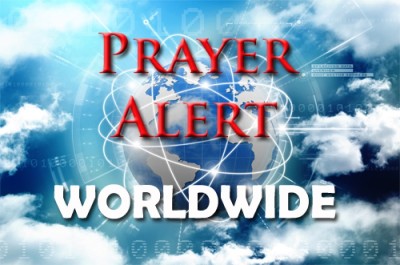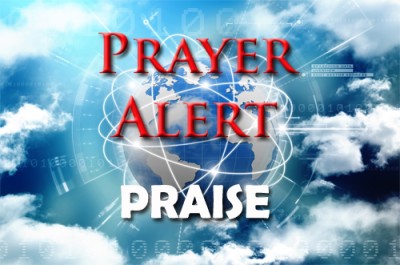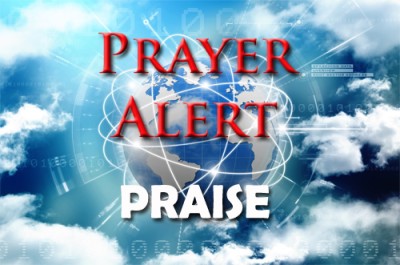The Americas: Religion
27 Jan 2023The influence of the Church is waning and waxing in north and south America. The religious forms once dominant (Catholicism, mainline Protestantism) see a marked decline in their influence. Secularism, the growing presence of other world religions and the increasing personalisation of spirituality all gravitate against classical Christian orthodoxy. Evangelicals and charismatics continue to grow - but not as fast as they once did. Pray for Christians to come to a personal faith in Christ, not striving to earn entrance to heaven by works, ceremonies and pilgrimages. Prosperity theology can turn God into a heavenly sugar-daddy who exists to bless us rather than a loving Father who wants engagement in every area of our lives. It syncretises the Gospel with materialism and stunts the growth of the Christian with a focus on things of this world. Maturity is needed in the churches. Sanctification and maturity are often lacking. Churches that grow spectacularly often decline in the same manner.
There is a move to change Queensland’s Anti-Discrimination Act, and the Queensland Human Rights Commission (QHRC) has recommended removing the right of Christian schools to exclusively hire Christian teachers. They released a Report containing 46 recommendations, four of which relate to religious bodies, one of these recommendations would narrow the 'genuine occupational requirements' so Christian schools cannot require all staff to be Christian. Only certain roles would meet that criterion, like the principal or chaplain. A science teacher, for example, would not be required to be a Christian. This dramatically undermines a Christian school’s ability to fulfil their ethos. Christian schools are places where students practise their faith along with teachers and staff. The idea that staff are not required to live according to the school’s religious ethos is at odds with faith-based learning. The Australian Christian Lobby is encouraging Australians to write to their MPs and the Minister for Education to express their concerns.
Bangladesh: Missionary support needed
27 Jan 2023Bangladesh is one of the world’s most densely populated countries. Bangladesh was part of Pakistan until its independence in 1971. Islam is the official religion, and the government propagates Islam with financial assistance to mosques and by organising Imams’ training. 89% of the population is Muslim. The Christian population is a fraction of 1%, facing persecution from Muslim communities and ISIS. Christians meet in underground house churches. In the early 1800s, William Carey ministered to the Bengali and translated the New Testament into their language. Today, indigenous missionaries effectively continue the work of evangelism and discipleship. Missionary support and funding is their greatest need for discipleship and training programs. Missionaries also engage in compassionate outreach, including providing education to poor Muslim and Christian children, running feeding centres that provide nourishment to hundreds of children, and sheltering orphaned or abandoned children.
DRC: Conflict and Christians
27 Jan 2023On 25th January, Rwanda's military fired at a Congolese fighter jet that had violated their airspace for the third time recently. The DRC called the shooting ‘an act of war.’ This incident comes a week before Pope Francis is to make the first papal visit to Kinshasa since 1985. The Pope plans to shine a spotlight on the bloodshed of the conflict in eastern DRC, one of the world's most resource-rich yet conflict-ridden regions. On 15th January an improvised explosive device ripped through the congregation at a baptismal service conducted by a blind pastor. It severed limbs and killed at least 17 people. This attack in North Kivu province is just the latest terrorist outrage in the DRC by the Allied Democratic Forces, one of the most dangerous of dozens of armed groups in eastern DRC. As well as physical injuries, terrorist violence has left DRC Christians suffering serious emotional trauma.
Myanmar: Opium production at nine-year high
27 Jan 2023The production of opium increased sharply in Myanmar, reaching nearly 795 metric tonnes in 2022, nearly double the production in 2021 - the year of the military coup that plunged much of Myanmar into a bloody civil war that still continues. The UN believes the increase is driven by economic hardship and insecurity that followed the military takeover, and farmers in remote conflict-prone areas have had little option but to move back to opium. The region, where the borders of Myanmar, Thailand, and Laos meet - the Golden Triangle - has historically been a major source of opium and heroin production.
Ex-Psychic exposing divination and occult
20 Jan 2023For decades, Nizza was a psychic medium and a teacher of occult on topics such as: the law of attraction, past life regression, automatic writing, tarot, and mediumship. But her story took a dramatic turn at age 36 when she became a Christian and abandoned those practices. She’s sharing her powerful transformation story on a podcast ‘Ex-Psychic Saved: Exposing Divination, New Age, and the Occult.’ In a world increasingly enraptured by horoscopes, tarot cards, and other facets of the occult Nizza offers a powerful message on a bi-weekly show sounding the alarm on the dangers of the occult. She will talk about many New Age topics, expose where psychics get their information, and interact with guests.
Young people tackle climate change
20 Jan 2023Young people across the UK have the opportunity to win funding to help tackle climate change, as part of a ground-breaking initiative from the Woodland Trust. The youth innovation competition offers young people the chance to secure part of a £20,000 prize to support their environmental projects. The competition comes against the backdrop of an alarming Met Office announcement that 2022 was the warmest year in the UK on record, highlighting the desperate need for climate change action. Nine individuals or small groups (aged between 16-25) will win up to £5,000 project funding each, along with mentorship from leading industry experts to deliver projects which directly fight the climate crisis. The projects must fit into three categories: inspire, protect and create.








